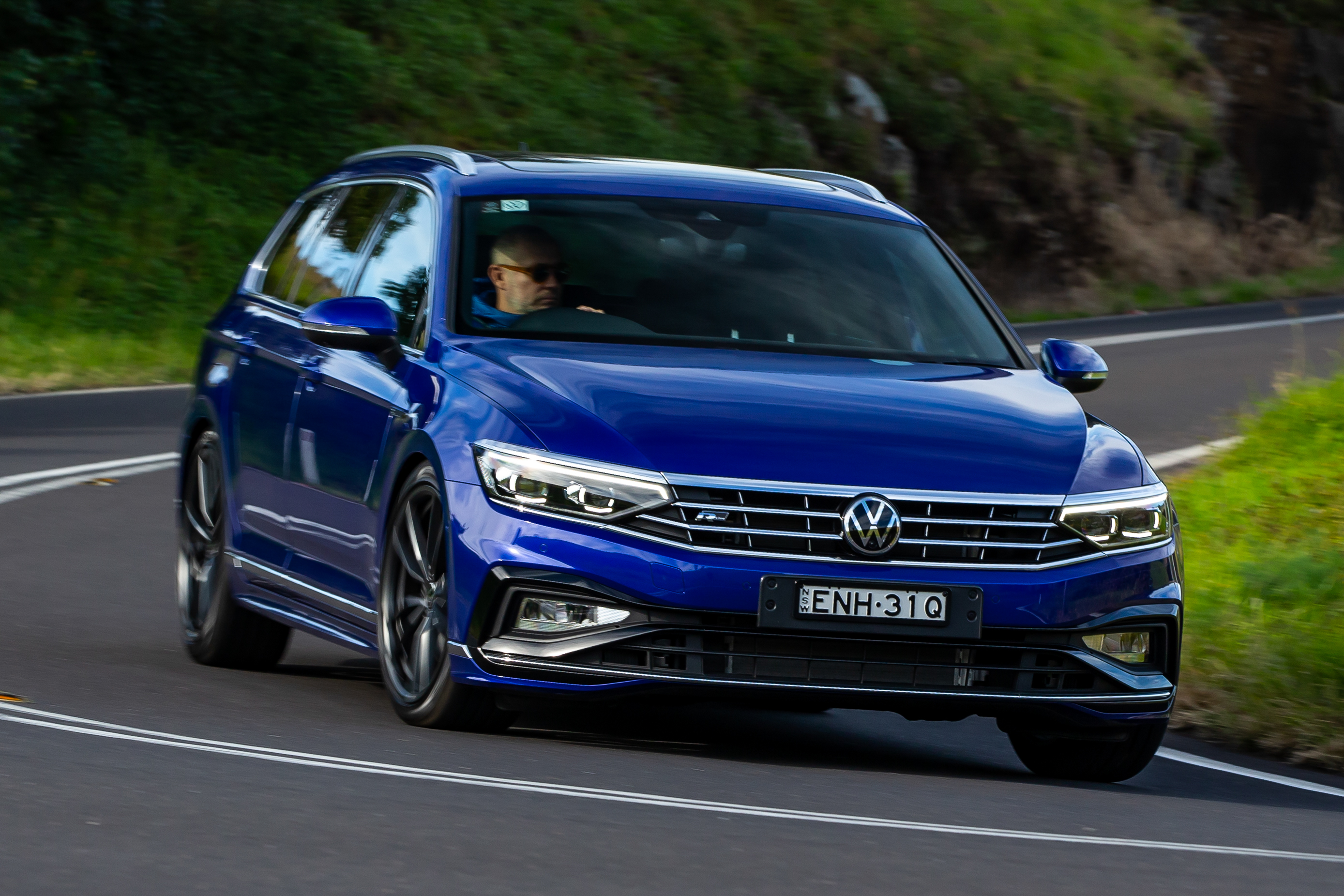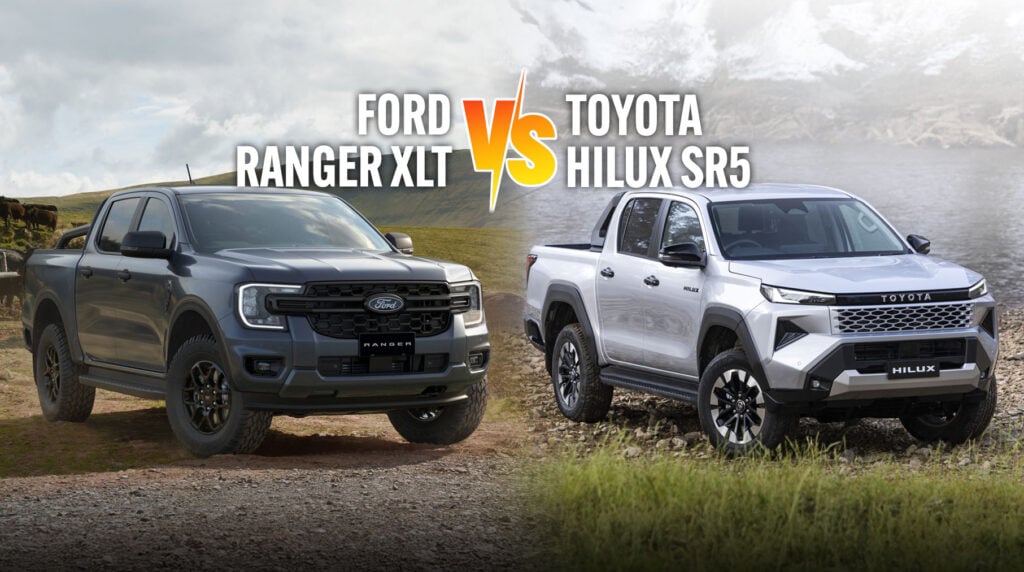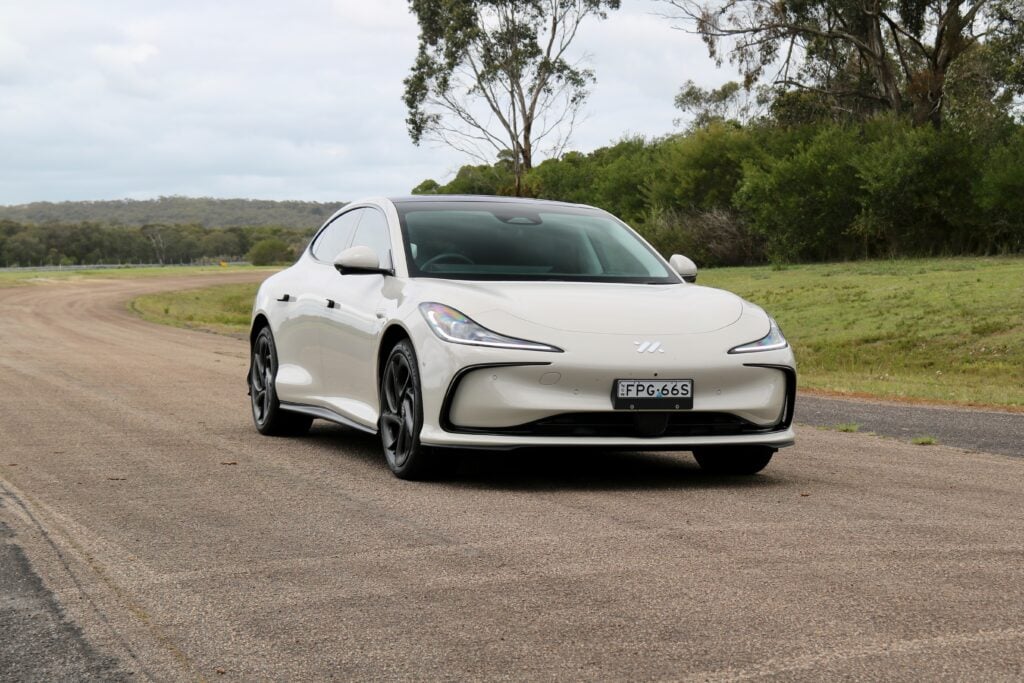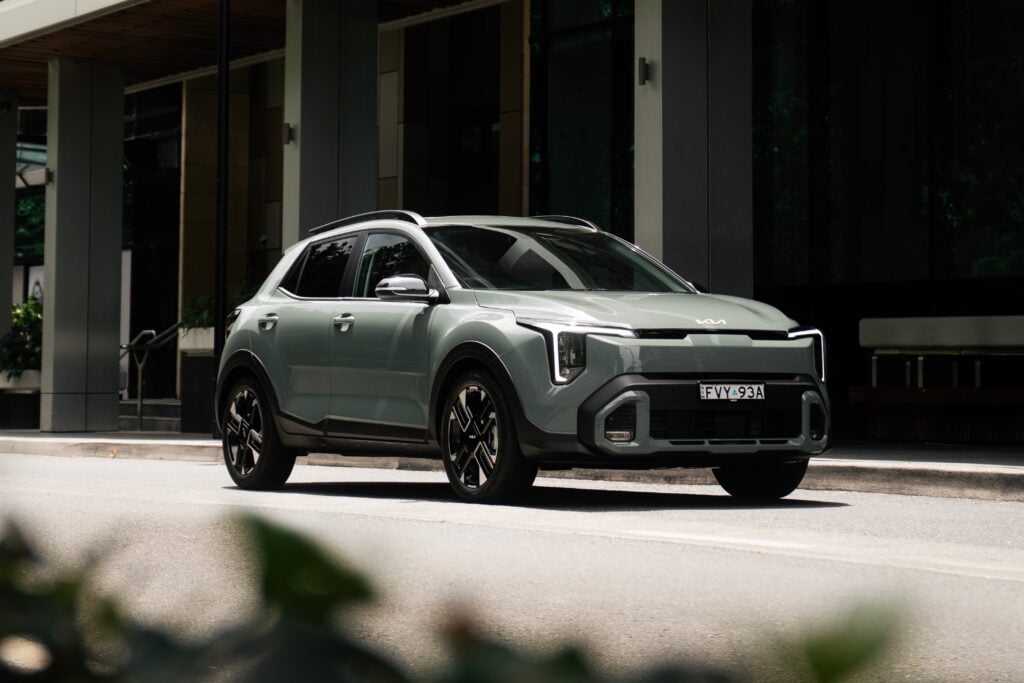Score breakdown
Things we like
- Relaxing ride
- Excellent cabin comfort
- Engine’s refinement and flexibility
- Practical and roomy interior
Not so much
- Dynamics are capable rather than sparkling
- Missing some tech, including DAB and wireless phone charging
- Above-average servicing costs
Volkswagen may be set to offer a comprehensive range of R-badged performance SUVS from next year, but the German brand isn’t yet willing to abandon sporty estates.
Ahead of the next-generation Golf R wagon due in early 2022, the Volkswagen Passat 206TSI R-Line has returned from a WLTP-enforced two-year sabbatical to again headline the company’s large car line-up.
It will be joined later this year by the Passat-based Arteon Shooting Brake 206TSI R-Line, forming a double-act of temptations for Australians pining for a contemporary version of the Passat R36 last sold more than a decade ago.
The Arteon R, a closer spiritual successor, has been ruled out for Australia, though the 206TSI at least matches the maximum torque and all-wheel-drive layout of the R36.
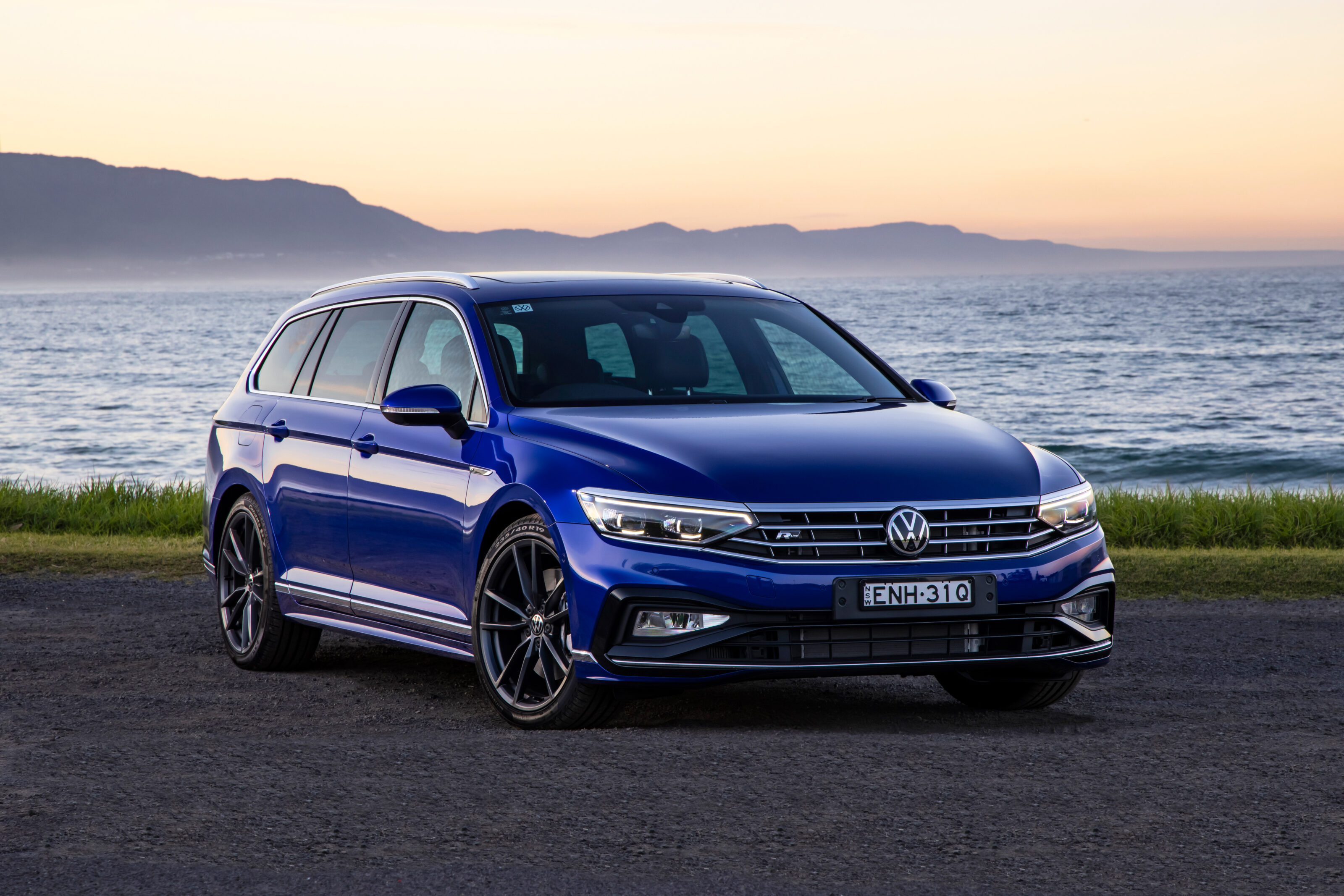
Priced from $63,790 before on-roads, it’s slightly cheaper, too, while also undercutting both the equivalent sloping-roofed Arteon Shooting Brake (by just over $5000) and closely related Skoda Superb 206TSI Sportline 4×4 (by just over $2000).
Within the Passat range, the R-Line brings a more athletic aesthetic over the Elegance and Alltrack wagons with its bodykit bumpers and sills, rear roof spoiler, tinted glass (from B-pillar backwards) and larger, 19-inch five-twin-spoke matte-graphite wheels.
An R-Line option pack is available for the Elegance, though while it also shares Matrix LED headlights it misses out on the 206TSI R-Line’s larger wheels and exclusive Lapiz Blue hero colour (pictured). In case that’s not your shade of choice, there are five other paint finish options as well as the standard white.
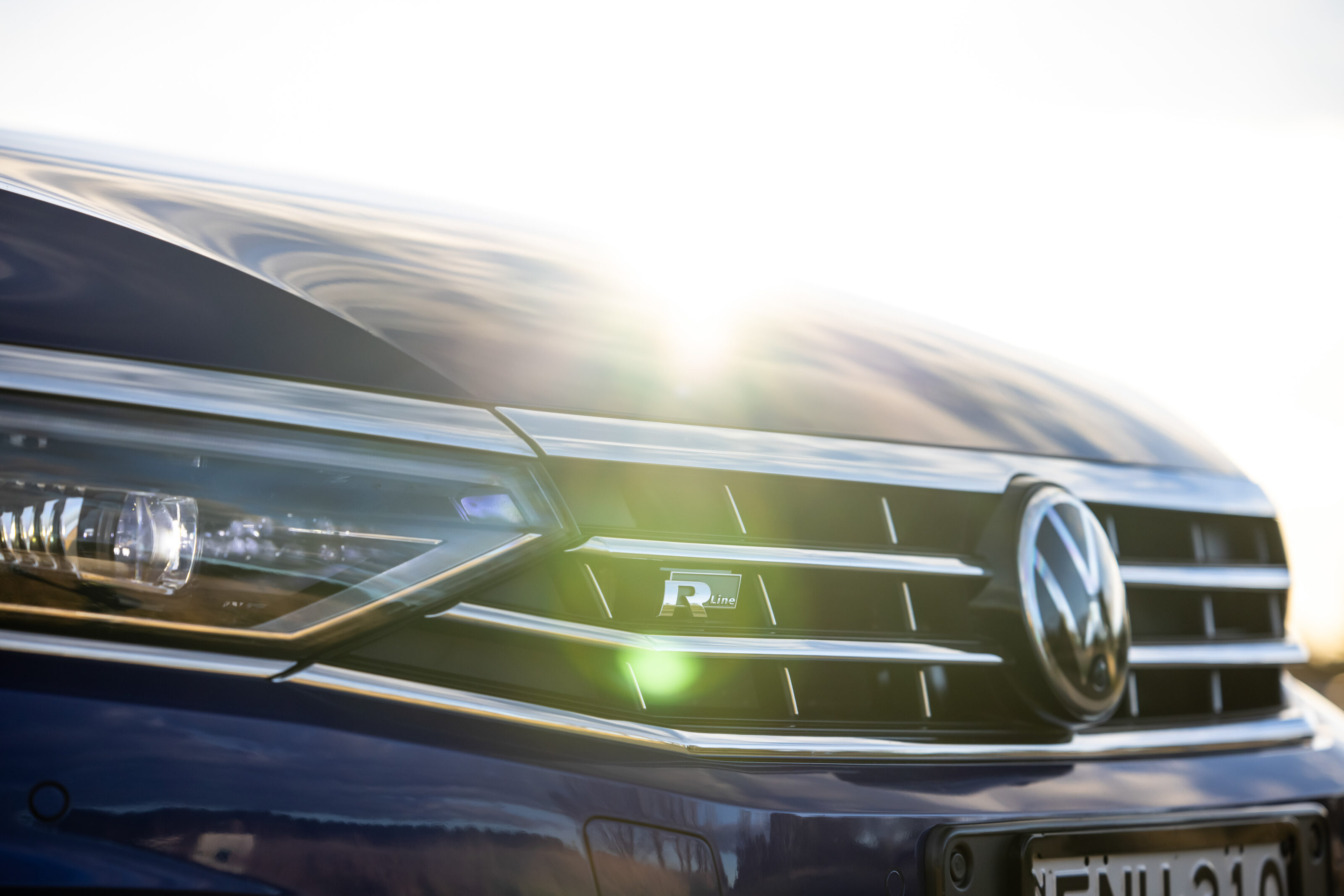
R badging for the dimpled-leather steering wheel and thickly bolstered, black leather-appointed seats lend the interior some sporting flavour without allowing the cabin to stray too far from the Passat’s executive ethos.
There’s a greater consistency to materials quality compared with the new Mark 8 Golf, while this generation of Passat – now into its sixth year – avoids the small car’s slightly controversial, minimalist approach to buttons.
A climate control panel remains in sight rather than, as with the Golf, being secreted in the infotainment touchscreen. It’s just a shame the modern touch-style buttons for adjusting temperature and fan speed feel so numb.
The Volkswagen Passat 206TSI R-Line matches the maximum torque and all-wheel-drive layout of the Passat R36 last sold more than a decade ago.
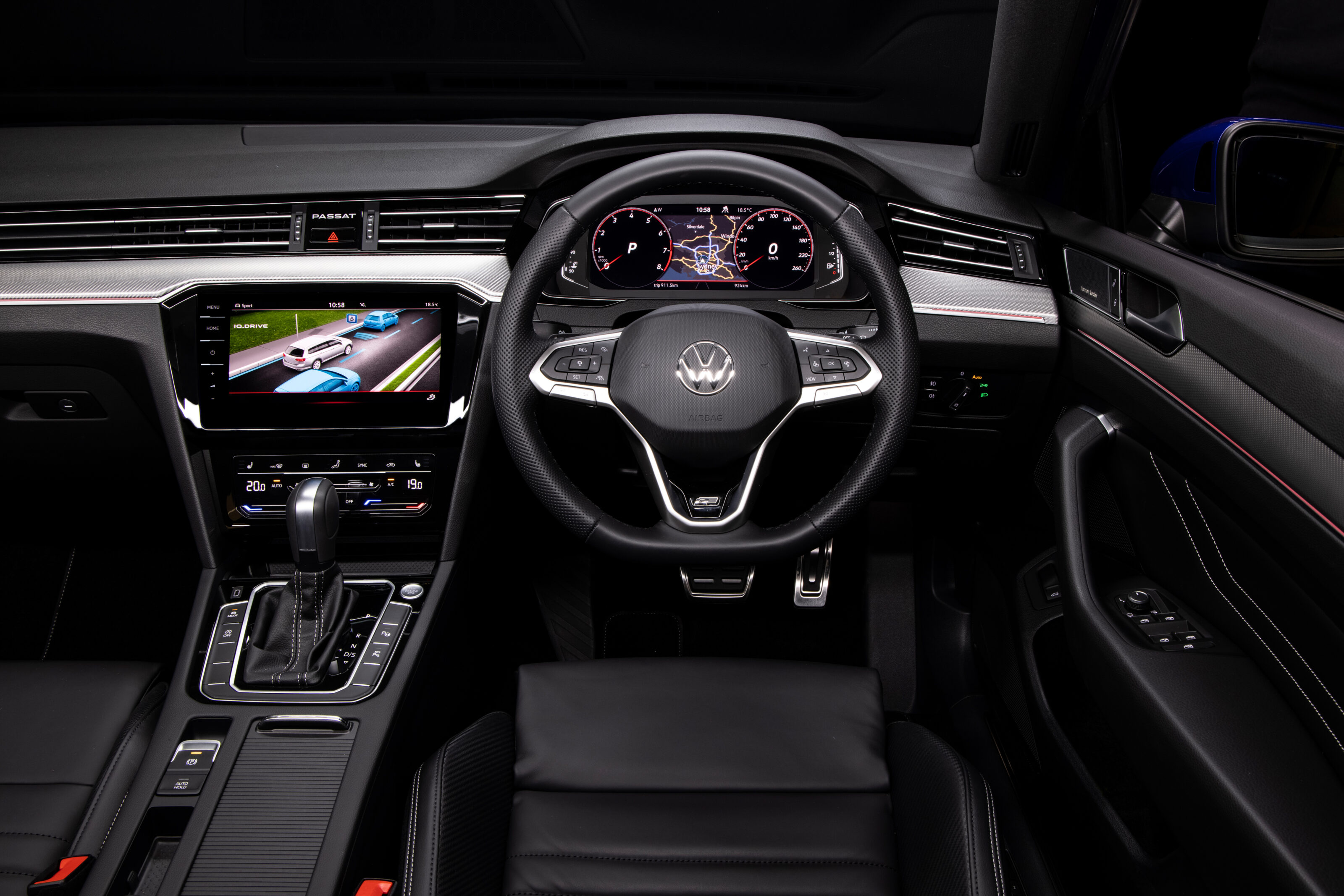
Depressing more conventional buttons elsewhere is a more tactile experience, including the steering wheel where the driver can adjust the layout and information on the excellent digital driver display. Speed limit notification technology is just one notable omission.
Wireless Apple CarPlay and Android Auto are a plus for owners who hate cables, though one will be needed to charge your phone as the Passat shows its age with the absence of an inductive-charging smartphone tray and digital radio. The ports are also the USB-C type, so some owners will need adaptors.
The Harman Kardon audio system is one that will encourage occupants to crank up the volume.

In VW tradition, storage options are plentiful – including generously sized (flocked) door cubbies.
Rear-seat passengers have places to store tablets, books or drinks bottles, and also have access to a single USB-C port.
Dedicated ventilation keeps them warmed or cooled, and the panoramic glass sunroof provides extra light throughout the entire cabin when the blind is retracted.
The wide rear windows also provide excellent vision, while most adults will appreciate the amount of legroom and headroom on offer.
If the ISOFIX-equipped outboard seats aren’t being used for child seats, older family members, friends or colleagues are treated to supportively scalloped seats.
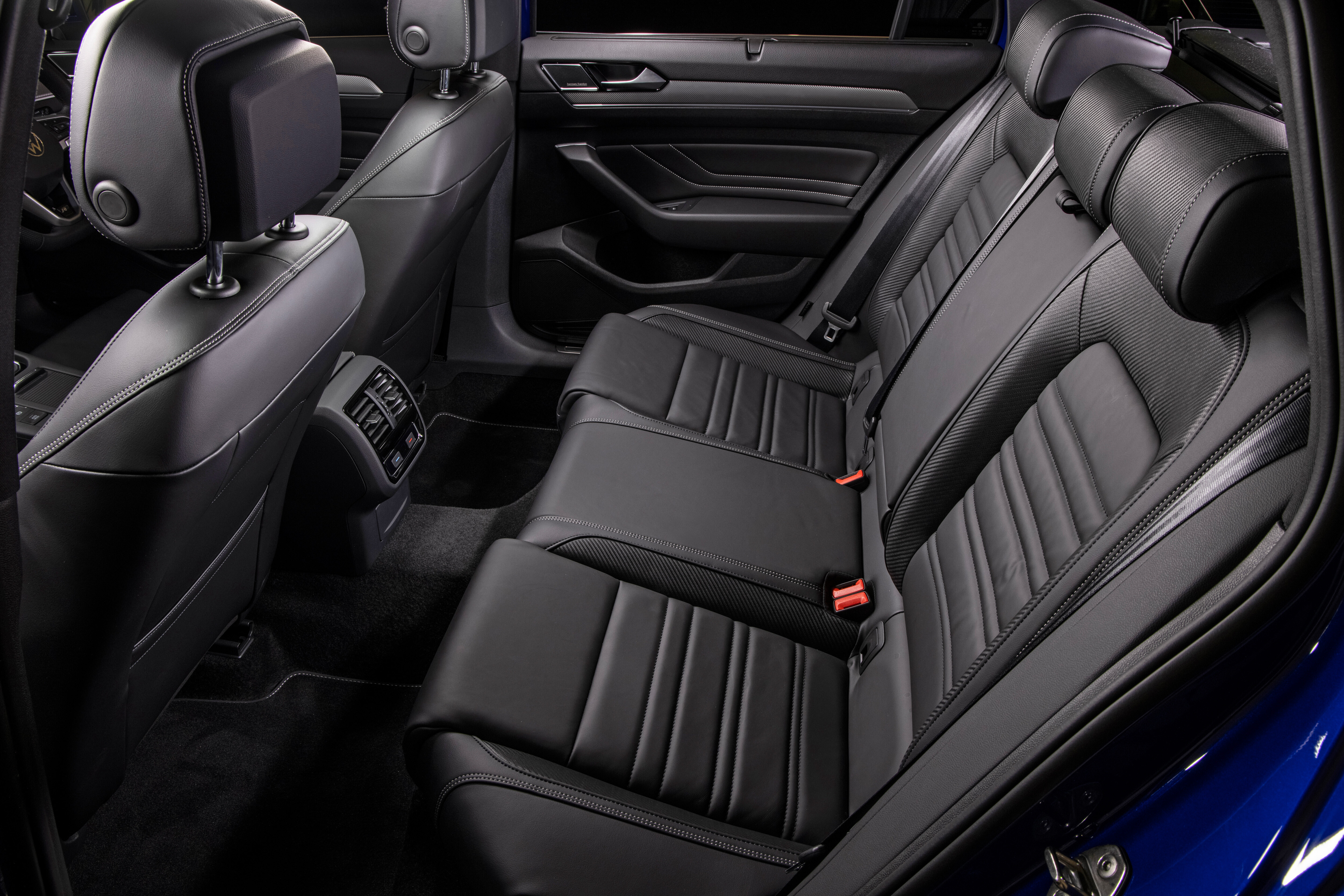
The Passat wagon continues to be practical beyond its volumetric advantage over the sedan version.
As with the Elegance variant, the boot includes a two-stage cargo blind, net partition, flip-out and integrated shopping bag hooks, 12-volt socket and side storage areas, plus release levers for folding the rear seatbacks flat.
The ideal 40-20-40 configuration allows just the centre portion to be collapsed and allow for longer items to be loaded even when the outer rear seats are in use. A gesture-operated automatic tailgate is standard, too.
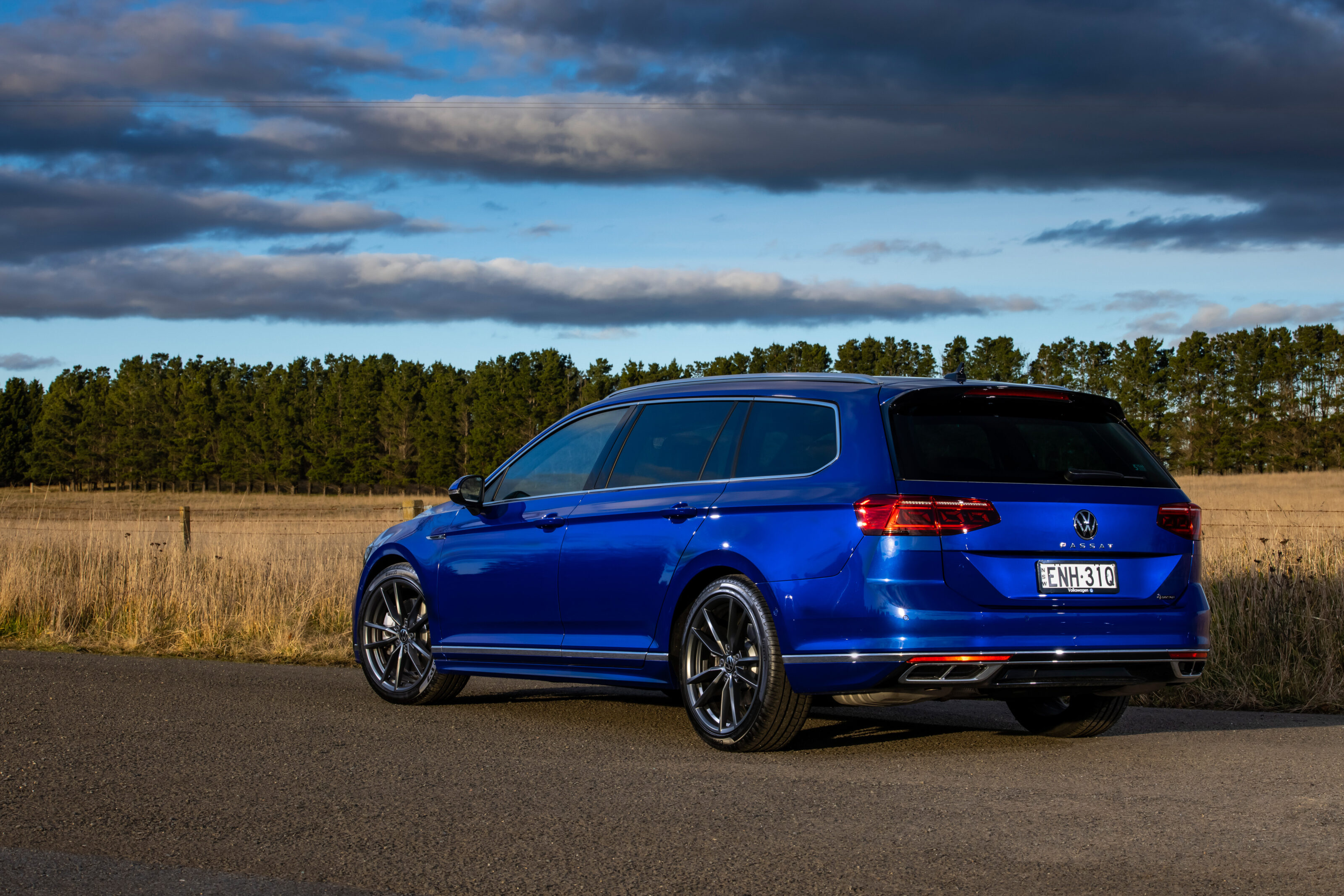
It doesn’t feel scintillatingly quick, yet the R-Line builds pace in a satisfying, linear fashion, with the strongest of throttle applications accompanied by a rousing snarl that’s borrowed from the Golf R.
Boot space is quoted at 650 litres, or 1780 litres – with a two-metre-plus load length – with the rear seats folded. And there’s a full-size spare under the floor.
There’s a presumption that 206TSI R-Line buyers are seeking more than practicality, otherwise they could simply choose the Elegance wagon and pocket about $12,000 in savings.
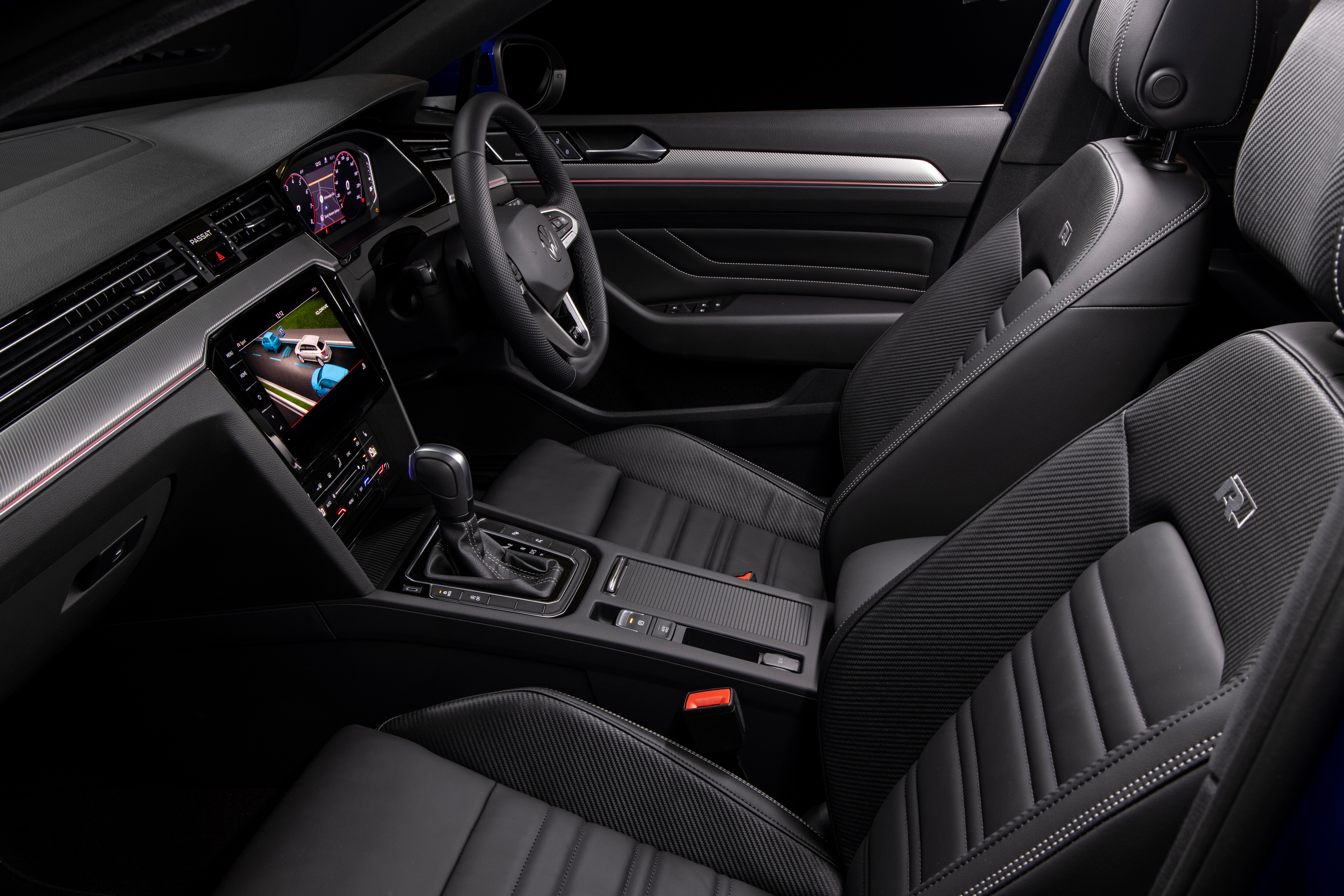
The flagship duly delivers extra performance with the bonuses of 4Motion traction and an extra 44kW (though a 350Nm peak torque is shared).
Volkswagen isn’t quoting 0-100km/h times for the latest Passat range, though the 206TSI had a previous claim of 5.7 seconds.
It doesn’t feel scintillatingly quick, yet the R-Line builds pace in a satisfying, linear fashion, with the strongest of throttle applications accompanied by a rousing snarl from the turbo four that’s again borrowed from the Golf R.
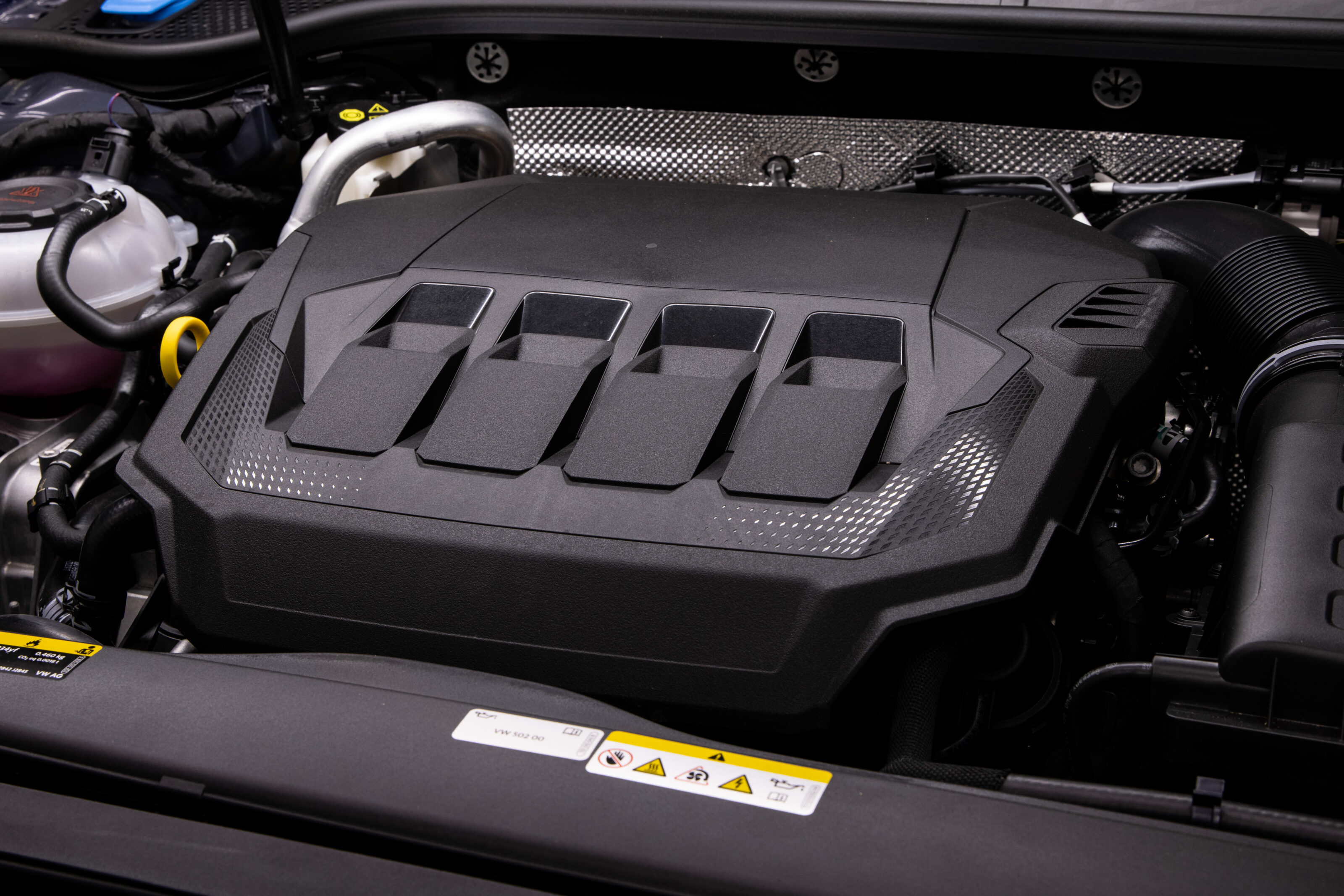
For drivers looking to revive memories of the Passat R36 last sold a decade ago, popping the Passat into Sport mode to stiffen the dampers improves body control noticeably over either the Comfort or Normal settings for those enjoyably circuitous routes.
Sport also brings some invaluable extra weighting, if no extra meaningful communication, to the steering.
It’s this factor more than anything that limits this wagon’s level of driver involvement, though it’s arguably less crucial in the context of a model badged R-Line rather than R.
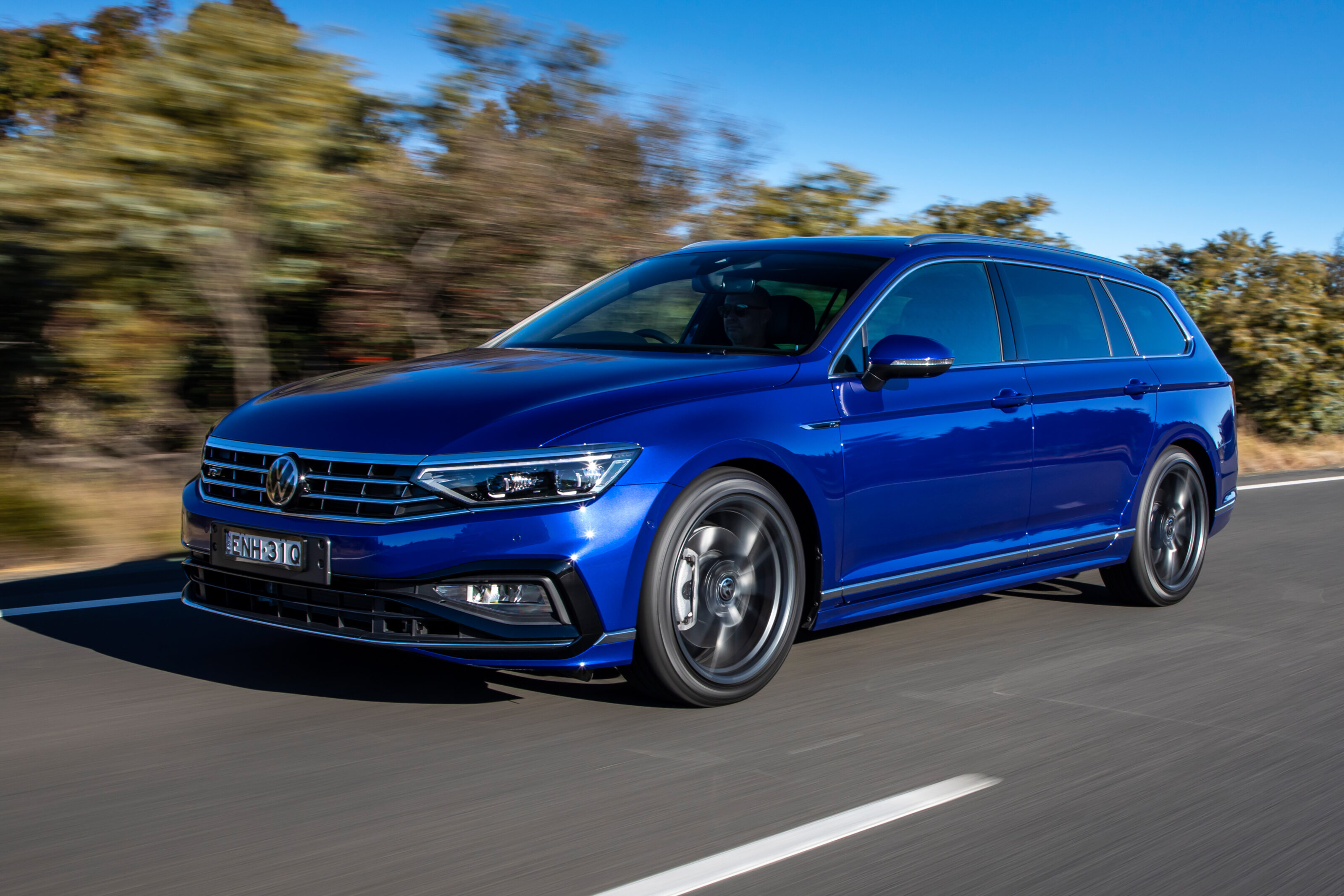
Consider the 206TSI as a GT wagon rather than a performance estate and it excels. With the softer damping forces of either Comfort or Normal, the Passat’s ride is thoroughly relaxing – operating in tandem with the effortless engine to reel off hundreds of kilometres of countryside.
The Individual profile enables varying settings, and we favoured Sport for steering with the drivetrain and suspension set to Comfort.
It’s also possible to fine-tune the damping via a touchscreen slider, even if most owners should find Comfort a shortcut setting that lives up to its labelling more than sufficiently.
The R-Line seats also help reduce driver fatigue with excellent all-round support and comfort.
Tyre rumble from the 235/40R19 Pirelli Cinturato P7 tyres is the only obvious blemish on the Passat 206TSI’s rolling refinement.
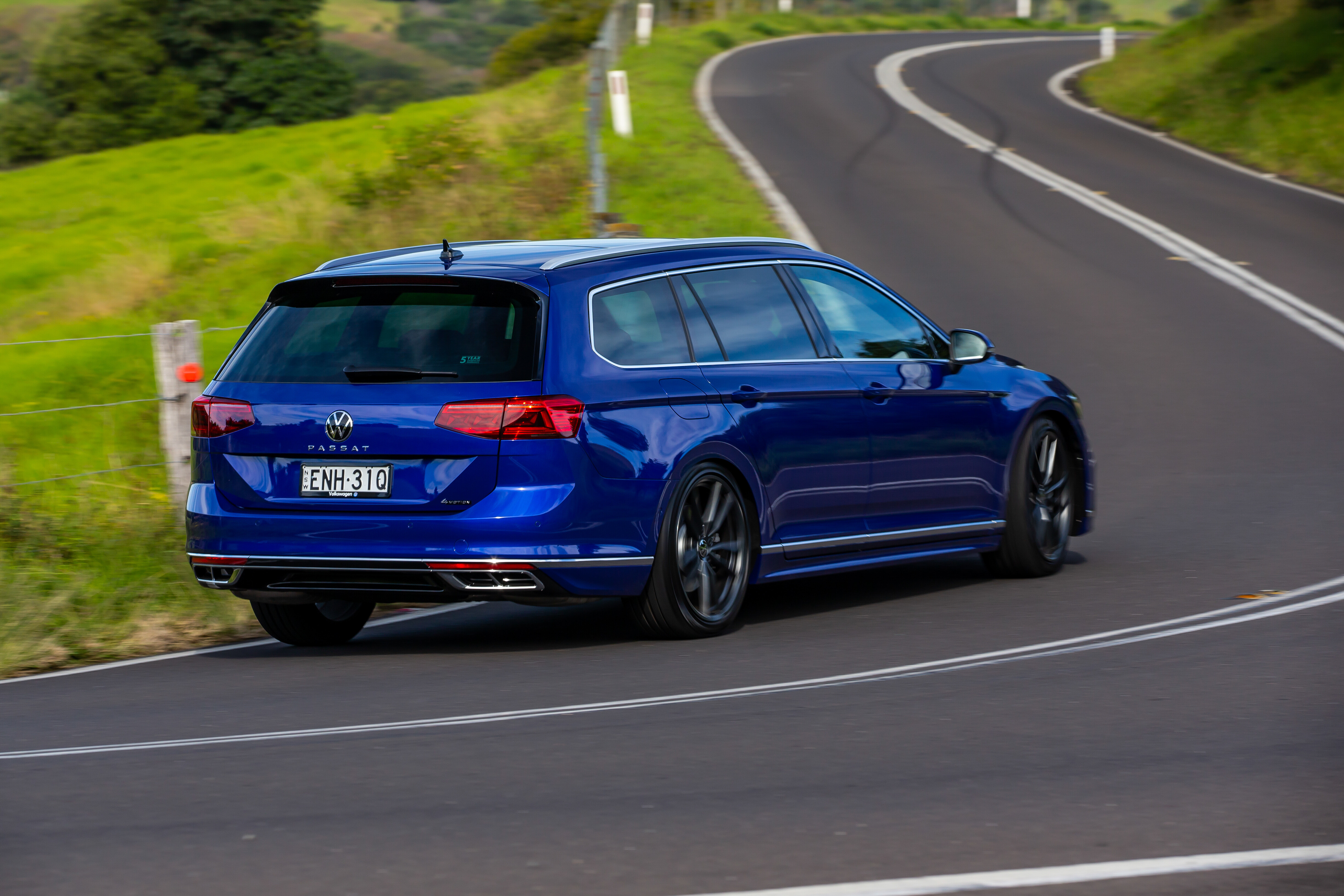
The six-speed DSG auto can take a moment to react when the driver tries to accelerate away normally from a stationary position but is only a minor quibble for all but the most eager of Traffic Light GP contenders.
An Auto Hold function is worth keeping engaged, as this is a transmission that will otherwise allow the vehicle to roll back if trying to drive off from an uphill parking spot. It’s also a set-and-forget function, remaining activated for every time you use the car until the driver chooses to disengage it.
The 206TSI has a useful braked towing capacity of 2000kg – same as the Elegance wagon though 200kg more than the Alltrack.
New technology for 2021 includes temporary autonomous steering that VW dubs Travel Assist.
Consider the Passat 206TSI R-Line as a GT wagon rather than a performance estate and it excels with a thoroughly relaxing ride – operating in tandem with the effortless engine to reel off hundreds of kilometres of countryside.
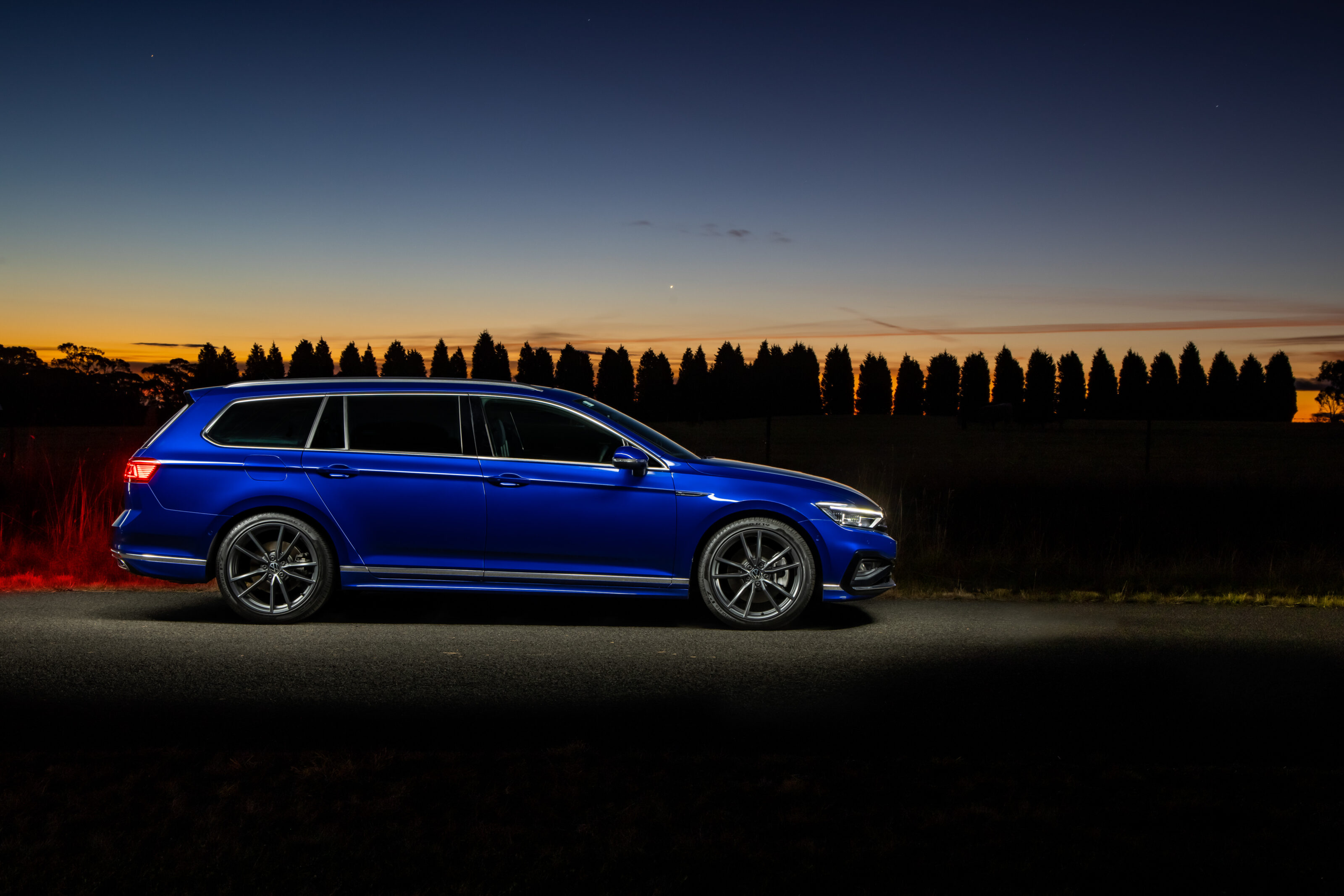
Although VW provides a five year/unlimited-kilometre warranty these days, it is worth noting a couple of points about this Passat’s running costs.
Servicing fees are higher than average (and higher than for the Skoda Superb), with a particularly brutal $1349 charge at the 60,000km mark or fourth year. Some money can be saved by paying upfront for three- or five-year service plans that cost $1600 and $2500 respectively. Intervals are 12 months or 15,000km.
And the 206TSI engine has a distaste for Australia’s lower-quality fuel, requiring the highest premium (98RON) fuel. Our test drive indicated an average of 9.0 litres for every 100km, with the official consumption set at 8.1L/100km.
If neither of those are dealbreakers and you’re not setting expectations for a cut-price Audi RS4 Avant, then the VW Passat 206TSI R-Line wagon delivers a well-judged blend of practicality and upmarket feel with a modicum of sportiness.
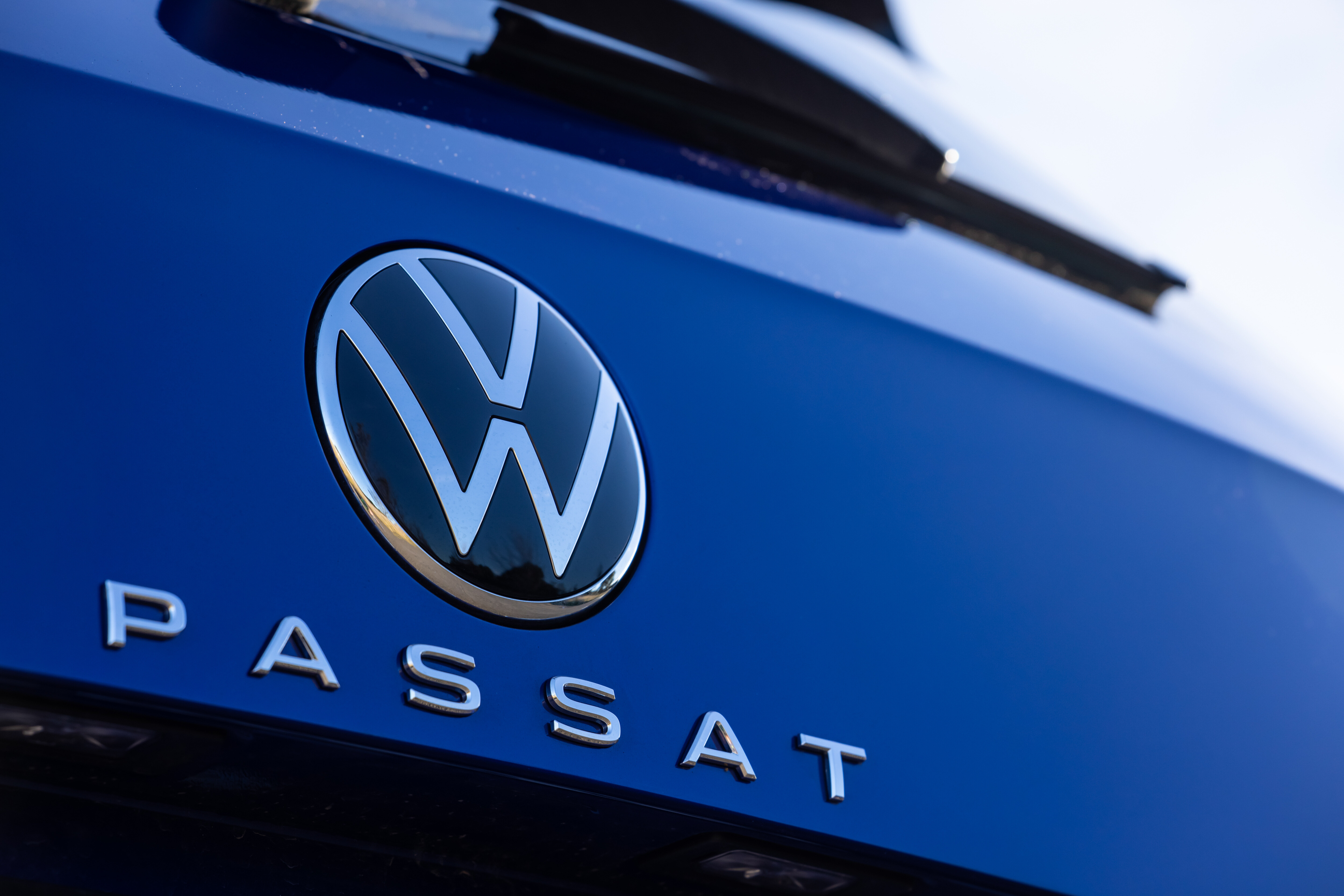
2021 Volkswagen Passat 206TSI R-Line Wagon specifications
| Engine | 1984cc 4cyl, dohc, 16V, turbo |
|---|---|
| Max power | 206kW @ 5600-6500rpm |
| Max torque | 350Nm @ 1700-5600rpm |
| Transmission | 6-speed dual-clutch auto |
| Weight | 1655kg |
| 0-100km/h | 5.7sec (est) |
| Fuel Economy | 8.1L/100km |
| Price | $63,790 + ORC |
Score breakdown
Things we like
- Relaxing ride
- Excellent cabin comfort
- Engine’s refinement and flexibility
- Practical and roomy interior
Not so much
- Dynamics are capable rather than sparkling
- Missing some tech, including DAB and wireless phone charging
- Above-average servicing costs
We recommend
-
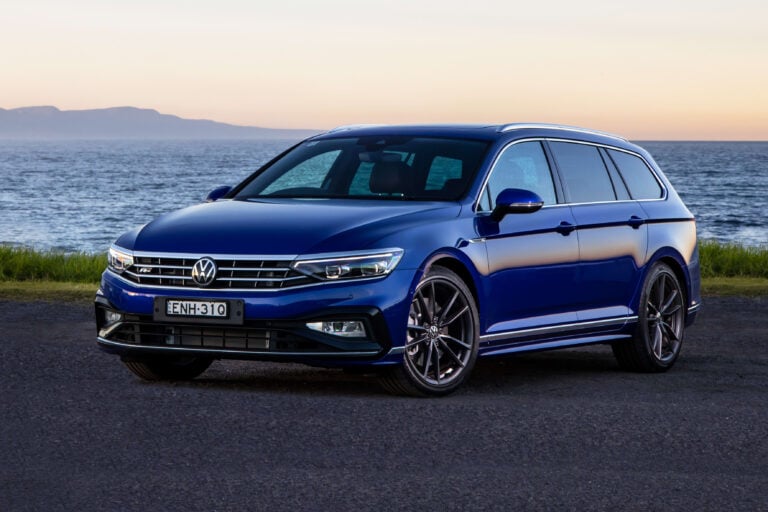 News
NewsVolkswagen relaunches Passat R-Line wagon
Passat regains R-Line trimmings to add to Volkswagen's fast wagon range
-
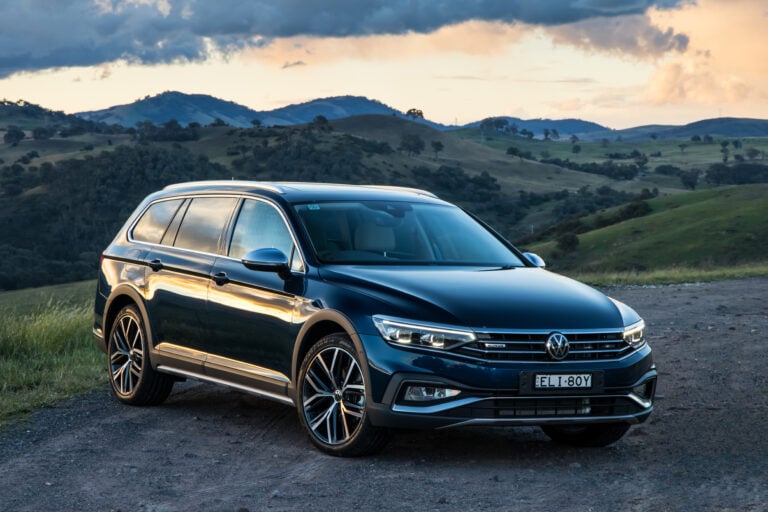 News
NewsVolkswagen Passat Alltrack pricing and features revealed
Volkswagen releases details of the Passat-based wagon which offers an alternative to SUVs
-
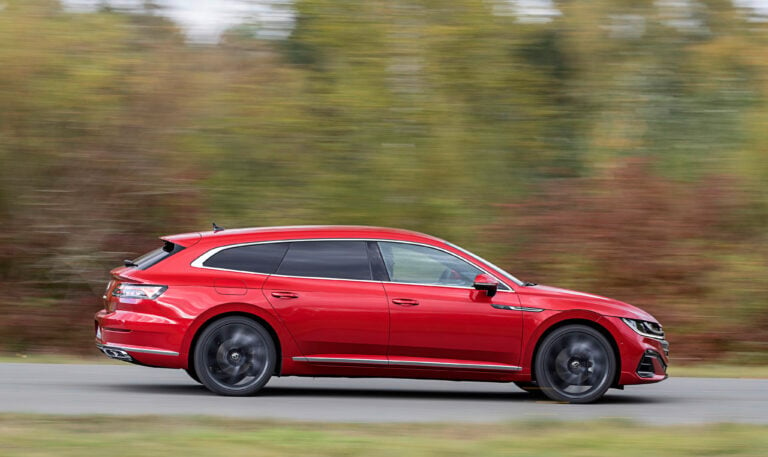 News
NewsVolkswagen Australia launches website to provide stock delay updates
Mounting VW delays due to semi-conductor shortage lead to local website launch


